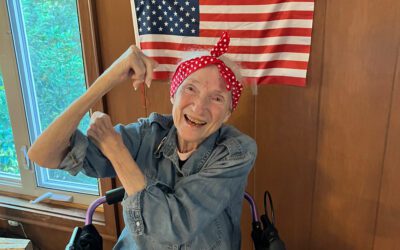Success is doing something long enough to have seen challenges overcome, gained perspective on the impact you’re having and watched the competitive landscape shift by your efforts. By that definition, Little Rock-based Project Zero has been a rollicking success.
For years, the group had led the charge for fostering and adoption in Arkansas under the skillful guidance of founder and executive director Christie Erwin. The group is responsible for hundreds of children finding loving foster or forever homes and has played a major role in the number of children waiting for a family to reach levels once thought impossible.
“Our latest number is there are 274 kids waiting to be adopted, which I think has been the lowest number I’ve quoted in the last twelve years,” Christie says. “At one point we were over 600, then for years we were at 500. The number continues to move down and it’s just amazing.
“I was in Pizza Hut last night and I had a sweatshirt on that said, ‘Until There Are Zero’. The lady who was waiting on me said, ‘Oh, I love Project Zero.’ I said, ‘I’m Christie. I’m the executive director.’ She said, ‘Can I hug you? I’m trying really hard not to cry because the Lord’s really working on my husband and me to adopt.’ People are seeing our kids and they’re seeing that they can be part of the solution, which is a beautiful thing.”
Christie is a hard woman to please, however, when it comes to waiting children. Even as she acknowledges the role the organization has played on reducing the number of kids, she’s after total victory. As the very name Project Zero suggests, the goal is for there to be no children waiting for the phone to ring, no five-year-old without someone to care for them, no teens staring at the ceiling in bed wondering why they’re not worthy of a family.
It’s a goal that runs contrary to the realities of the world, admittedly, but to Christie’s thinking any other number is unacceptable.
“I think oftentimes people get this vision in their minds of children or teens in foster care. As a society, sometimes we tend to look at them as less than,” she says. “Our team and the team at the Arkansas Department of Children and Family Services want people to see that they are not second-best to anyone. They are not less than.
“I think [Project Zero] being able to give them a voice, being able to give them a face, helps to cast a wider net and reach people who maybe don’t know about them.”
One of the major ways Project Zero is accomplishing this exposure is through multimedia campaigns. These include the Arkansas Heart Gallery which provides a photo and profile of each child or sibling group. Project Zero has also commissioned short films that help capture children in their own words.
“Definitely one of the things we have seen that has made a tremendous impact has been our short films. We’ve been doing that for almost ten years and shot probably over 750 short films. This year alone we shot 164 short films,” Christie says.
“The Heart Gallery photos have also been transformative,” she says, noting one story among many about a young couple who came to church and saw a display set up by the organization.
“They saw a photo of a little guy who has special needs. The photo was not one of our best, not anything that you would ooh and ah about, it was just a plain photo,” she says. “They messaged me and said, ‘God moved in our hearts this morning and we want to know more about him. We want to open our home up.’ I heard from them just yesterday; which was the three-year anniversary since they finalized their adoption.
”Displays such as these, along with live meet-and-greet events, help bring together children and prospective families, another element of Project Zero’s attempt to put a human face on the issue of waiting children.
“Connection events not only give folks an opportunity to interact with waiting kids and vice versa, but it gives them a visual and many times [families] totally change what they thought they wanted to do,” she says. “Maybe they started out wanting to adopt a young child and they get there and meet a teenager and they decide to go that route.”
The success of the organization speaks to Christie as a cheerleader for “her” kids, which she is. But she’s also adept in laying out the facts of foster and adoptive life for prospective families. While it may seem counterintuitive to risk scaring off an interested couple, Christie said it’s the best way to help ensure, as much as it is possible, that a foster or adoption sticks.
“Oftentimes families come into this process with their own expectations, their own thoughts and sometimes they’re a little bit blinded by ‘Love is going to cover this,’” she says. “With kids who have been through trauma and are coming from hard places, you’ve got to parent them in a different way. There are things that you’ve got to ferret out within what is available as a resource for that specific child, not as a sweeping thing for all adoptive kids. You’ve got to be a student of what your child needs.
“We’ve got to do a better job on the front end because what happens sometimes is families go in with unrealistic expectations and it ends very badly. Then, if you have a disruptive adoption, the child has another level of trauma, another layer of ‘I’m not good enough. Why does nobody love me? Why am I so bad?’ All those questions are just so horrible.”
Christie knows of what she speaks and not just from an organizational perspective. She and her husband, Jeff, became foster parents in 1993, fostering for twenty years for a private, non-profit adoption agency and, starting in 2004, for the Arkansas Department of Children and Family Services. They’ve fostered more than fifty children and adopted two.
In 2009, Christie’s book, The Middle Mom – How to Grow Your Heart by Giving it Away, was published, the same year she received the Congressional Coalition on Adoption “Angel in Adoption” award. She also represented Arkansas as the American Mother of the Year in 2016. In addition to Project Zero, she is a founding member of The CALL (Children of Arkansas Loved for a Lifetime), which recruits and educates prospective foster and adoptive households.
All of that represents a pretty successful career for many people, but for Christie, there’s still much important work to be done until the organization truly lives up to its name.
“The big dream is to have more families waiting to adopt than kids who are waiting to be adopted, to literally get to zero,” she says. “To have so many families waiting that when little Suzy comes into the system, you’ve got ten families, and you pick one that’s the best fit for her.
“They’re big dreams. They really are and they haven’t dimmed over the last twelve years. There’s been hills and valleys and incredible heartbreak and discouragement, but the vision and the enthusiasm and the passion for waiting kids and for their futures has not dimmed.”
Learn more about Project Zero at theprojectzero.org. Do South Magazine is proud to feature waiting children in every issue.




